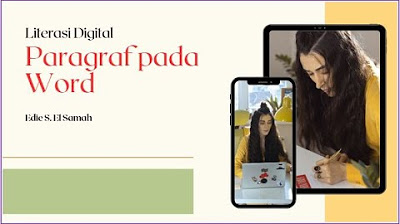💡 metalearning | a framework on learning how to learn
Summary
TLDRIn the video, the concept of metalearning is introduced as a transformative approach to mastering new skills efficiently. Highlighting Scott Young's extraordinary achievements in learning, the speaker emphasizes the importance of understanding the 'why,' 'what,' and 'how' of metalearning. By focusing on self-directed learning and extracting frameworks from prior knowledge, individuals can tailor their educational paths to their unique goals. The discussion contrasts traditional learning methods with a more exploratory, personalized approach, encouraging viewers to harness their curiosity and direct their learning journeys effectively.
Takeaways
- 😀 Metalearning is essential for staying ahead in our rapidly changing world.
- 📚 Scott Young's book 'Ultralearning' illustrates the power of metalearning through his accelerated learning experiences.
- 🔍 Metalearning focuses on self-directed learning, enabling individuals to choose what and how they learn.
- ⚙️ Unlike traditional learning, metalearning emphasizes understanding the 'why,' 'what,' and 'how' of learning.
- 💡 The 'why' of metalearning includes both practical and intrinsic motivations for learning new concepts.
- 🎹 Learning frameworks can help guide the learning process and enhance memory retention.
- 🌳 Framework thinking allows learners to extract and apply knowledge from previous experiences to new challenges.
- 🧭 The 'how' of metalearning involves benchmarking common paths to desired outcomes and emphasizing valuable resources.
- 🚫 It's important to exclude ineffective resources, allowing learners to focus on what works best for them.
- 🌀 Metalearning encourages a mindset of learning, unlearning, and relearning, fostering adaptability and growth.
Q & A
What is metalearning?
-Metalearning is the process of learning how to learn effectively and efficiently, allowing individuals to acquire knowledge and skills in a self-directed manner.
How does Scott Young demonstrate metalearning?
-Scott Young completed a four-year computer science curriculum at MIT in just one year and learned multiple languages—Spanish, Portuguese, and Korean—in a matter of months using metalearning techniques.
What are the two primary motivations for learning discussed in the script?
-The two motivations are instrumental (practical goals, like becoming a physicist) and intrinsic (a pure desire to learn, such as exploring concepts in quantum physics for philosophical understanding).
Why is understanding the 'why' of metalearning important?
-Understanding the 'why' helps set clear expectations for learning outcomes and ensures that learners focus on what truly interests them or aligns with their goals.
What three questions should learners ask to define the 'what' of metalearning?
-Learners should ask: 1) What concepts do I need to understand? 2) What facts do I have to memorize? 3) What procedures do I have to practice?
How can frameworks assist in metalearning?
-Frameworks serve as shortcuts or mental models that help learners organize information, making it easier to understand complex concepts and retain knowledge.
What are the two main steps in the 'how' of metalearning?
-The two steps are benchmarking (identifying common paths to reach learning outcomes) and emphasizing or excluding resources based on their relevance to the learner's goals.
What does the speaker mean by 'self-directed thinking'?
-Self-directed thinking refers to the learner's ability to take control of their learning journey, choosing resources and pathways that align with their interests and goals, rather than following a prescribed curriculum.
How does metalearning differ from traditional learning?
-Metalearning emphasizes a personalized, explorative approach, allowing learners to define their paths and outcomes, whereas traditional learning often follows a rigid structure with prescribed materials and methods.
What is the significance of the 'knowledge tree' analogy mentioned in the script?
-The 'knowledge tree' analogy illustrates the importance of having a foundational understanding (the trunk) of concepts before branching out to acquire more specific knowledge, helping to organize and connect different pieces of information.
Outlines

This section is available to paid users only. Please upgrade to access this part.
Upgrade NowMindmap

This section is available to paid users only. Please upgrade to access this part.
Upgrade NowKeywords

This section is available to paid users only. Please upgrade to access this part.
Upgrade NowHighlights

This section is available to paid users only. Please upgrade to access this part.
Upgrade NowTranscripts

This section is available to paid users only. Please upgrade to access this part.
Upgrade NowBrowse More Related Video

اتعلم أي حاجة في 20 ساعة بس! 📈 كتاب: أول عشرين ساعة #أخضر

Surviving in the age of AI (as a software engineer)

14. Literasi Digital - Paragraf pada Word - Informatika Kelas X

Study Method to learn, memorize and pass tests

the hidden danger of learning daygame which i suggest you avoid

How He Studied So Fast in 7 Days It Feels ILLEGAL While Cramming 4 Months
5.0 / 5 (0 votes)